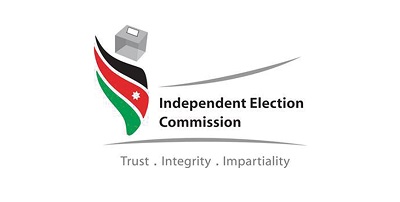Youth, adolescents bear brunt as experts warn of rising mental health crisis
The Jordan Times
AMMAN — The pandemic has exposed the serious gaps that exist in mental healthcare throughout the Kingdom.
“This is the result of the historic under-investment and lack of action to promote positive mental health, and prevent and care for mental health problems among children, adolescents, and caregivers,” according to UNICEF Jordan Representative Tanya Chapuisat.
Diagnosable mental health conditions affect about 1 in 7, or 14 per cent, of children and adolescents, aged 6 to 18, globally. Nearly half of all mental health conditions start by 14 years of age, but most cases, while treatable, go undetected and untreated, Chapuisat added in an email interview with The Jordan Times.
“COVID-19 was a sudden pandemic,” said Shatha Abdel Jaleel, a psychologist in Amman, noting that “it has increased anxiety, as well as other mental health conditions, such as depression and obsessive-compulsive disorder (OCD)”.
Jaleel added that the age group most affected by the pandemic-related mental health challenges has been youth; those aged between 10 and 27.
Those facing mental health challenges often don’t have enough information, or have “negative information” about psychologists, deterring them from seeking professional help, noted Jaleel, adding that she also sees a lack in number of psychologists in Jordan.
Israa Sha’aban, 19, fled Syria almost seven years ago and now lives in Zaatari Camp.
“When I first came to Jordan from Syria, I was in shock,” Israa told The Jordan Times, “I wouldn’t talk to anyone… I wouldn’t look at myself in the mirror”.
Encouraged by her mother, a “big mental health advocate”, Israa sought mental-health support. “I was able to vent and tell him my entire life story. It would have taken me longer to recover without a doctor,” she said.
At the onset of the pandemic, Israa faced a family-related conflict; the lockdowns and restrictions only worsening her situation.
“I stopped liking myself. I wouldn’t shower, I wouldn’t eat, I wouldn’t sleep. I just wanted anyone to reach out,” she told The Jordan Times.
This was another period Israa found relief in “opening up” to a therapist, she said. However, she noted her community “does not really accept mental health struggles”.
“If it wasn’t such a stigmatised issue, a lot more people would go seek services,” said Israa, pointing to the availability of free mental health services in the camp’s Makani centre, supported by UNICEF and the EU Trust Fund.
UNICEF also began providing telehealth services and webinars during the pandemic to enable young people to consult with specialised doctors around the clock and “break the silence surrounding mental illness, through addressing stigma and promoting better understanding”, Chapuisat added.
These telehealth services now support over 3,000 young people and the webinars, interactive sessions run by health professionals, reach nearly 500,000 youth in Jordan, said Chapuisat.
Donia Al Zaghaleel, 22, and Noor Smadi, 27, have also both began their own initiatives to tackle the stigma surrounding mental health in their communities in Jordan.
Donia runs free sessions to raise awareness surrounding the “importance of addressing mental health issues, talking about them, and convincing young people that it is not shameful to ask for mental health help”.
Her idea stemmed from her studies in biology, where she learned how interconnected one’s physical and emotional states are, and the lack of knowledge about mental health she witnessed.
“Mental health awareness in general in my community is non-existent,” she said, adding that “people have zero awareness about the issue. It is something that is a taboo.”
Noor aims to develop an app to address the negative views towards mental health. Her app would help young people in Jordan access affordable counseling sessions and provide a platform for those experiencing mental health challenges to share their stories.
“Attention should be given to both general and mental health,” Noor told The Jordan Times, adding that “many people here can’t find people to confide in”.
UNICEF Jordan aims to continue expanding the mental health services it offers to “further empower young women and men, who are at the most critical juncture in their lives, and provide them with the services and information they need to be healthy and successful”, concluded Chapuisat.
Latest News
 'Sinwar Above Ground': Hamas official's revelation shocks Israeli Occupation
'Sinwar Above Ground': Hamas official's revelation shocks Israeli Occupation US president signs bill to provide new aid for Ukraine
US president signs bill to provide new aid for Ukraine Prime minister directs government to support IEC ahead of upcoming elections
Prime minister directs government to support IEC ahead of upcoming elections Parliamentary elections for 20th Lower House to be held on September 10 – IEC
Parliamentary elections for 20th Lower House to be held on September 10 – IEC Amman Chamber of Commerce says GDP grows by 4.4% in 2023
Amman Chamber of Commerce says GDP grows by 4.4% in 2023
Most Read Articles
- Palestinian prime minister, Jordanian ambassador discuss humanitarian efforts in Palestine
- US president signs bill to provide new aid for Ukraine
- Senate president, Rwanda’s ambassador discuss bilateral relations
- Prime minister directs government to support IEC ahead of upcoming elections
- 'Sinwar Above Ground': Hamas official's revelation shocks Israeli Occupation
- “Israel” withdraws main infantry brigade from Gaza
- Iran cuts Syria presence after strikes blamed on Israel —monitor
- European Parliament overwhelmingly condemns Iranian strikes against “Israel”
- US Supreme Court seems split on Idaho abortion ban
- Vaccines saved at least 154 million lives in 50 years — WHO